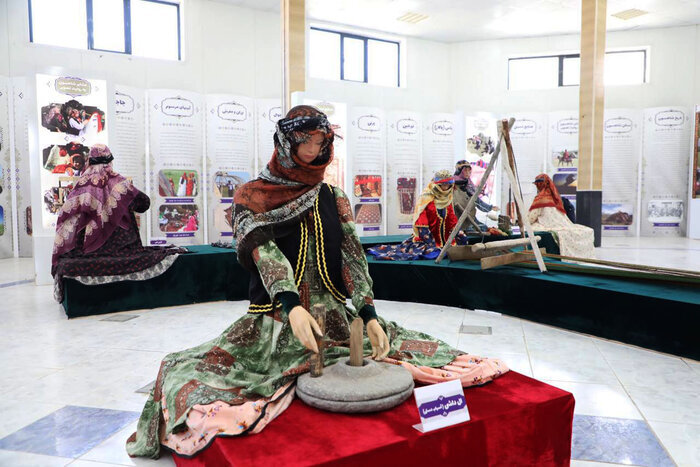Nomad museum inaugurated in Ardabil

TEHRAN – A museum dedicated to the nomadic people of Ardabil province, northwestern Iran, was officially inaugurated on Sunday.
The anthropological museum devoted to the rituals, arts, and the everyday life of tribespeople native to the province opened its doors to the public in the ancient town of Germi, the provincial tourism chief has said.
With a budget of 10 billion rials ($34,000) and covering an area of 600 square meters, the museum has been set up in less than three months, CHTN quoted Nader Fallahi as saying on Monday.
The museum aims at protecting and preserving the nomadic heritage of the region, the official added.
As a result of the opening of such museums throughout the province and the development of tourism facilities, it is expected to achieve an even distribution of tourist attractions throughout the province and increase the number of visitors staying in the province, he explained.
The culturally-rich Germi and its surrounding lands have long been destinations for avid archaeology buffs and eco-travelers.
Heaven for nomadic people, Ardabil is home to some nomadic tent hotels, which are reportedly the first of their kind in the country.
The Islamic Republic seeks to boost ethnic tourism or tribe tourism in which holidaymakers may even stay with a nomadic family or enjoy an independent stay.
Many tourists from all over the world tend to observe the lifestyle of these hardworking people and spend a few days watching activities such as milking, yogurt making, buttering, oiling, woolen, carpeting, and much more.
The varied natural setting of the country never disappoints visitors when it comes to tribal tourism as the culturally diverse country is home to many regional people including ones with Turk and Arab elements in addition to the Kurds, Baloch, Bakhtyari, Lurs, and other smaller minorities such as Armenians, Assyrians, Jews, and others.
Language, music, indigenous cuisine, clothing, songs, anecdotes, crafts, live performances, and local rituals such as celebrations and wedding ceremonies have always spurred many to experience life among the tribes.
Sprawling on a high, windswept plateau, Ardabil is well-known for having lush natural beauties, hospitable people, and its silk and carpet trade tradition. It is also home to the UNESCO-registered Sheikh Safi al-Din Khanegah and Shrine Ensemble.
The province is very cold in winter and mild in summer, attracting thousands every year. The capital city of Ardabil is usually recorded as one of the coldest cities in the country in winter.
ABU/AFM
Leave a Comment